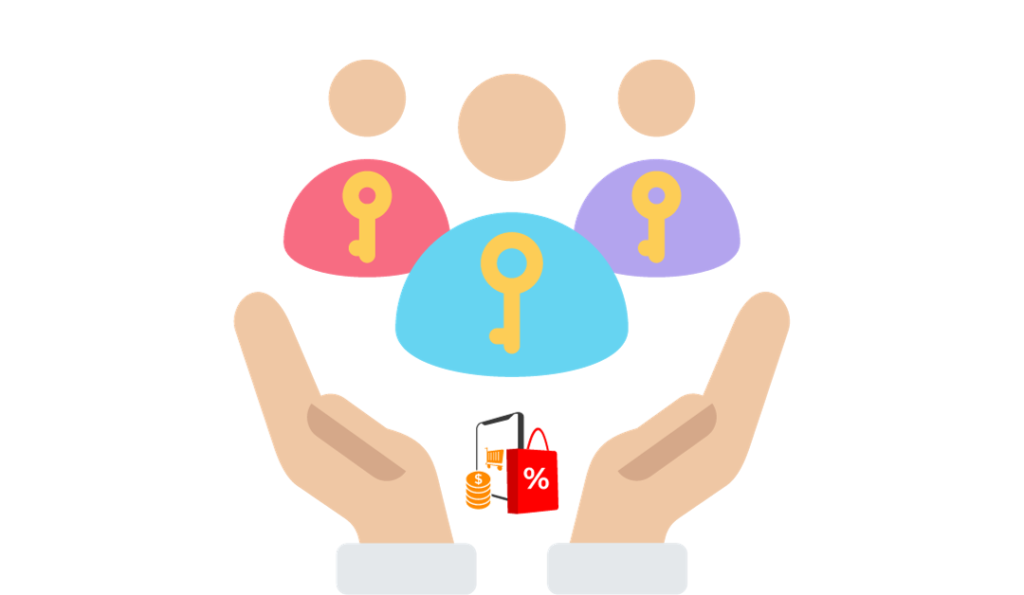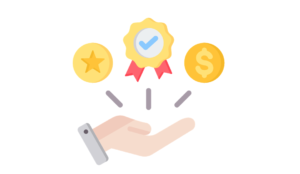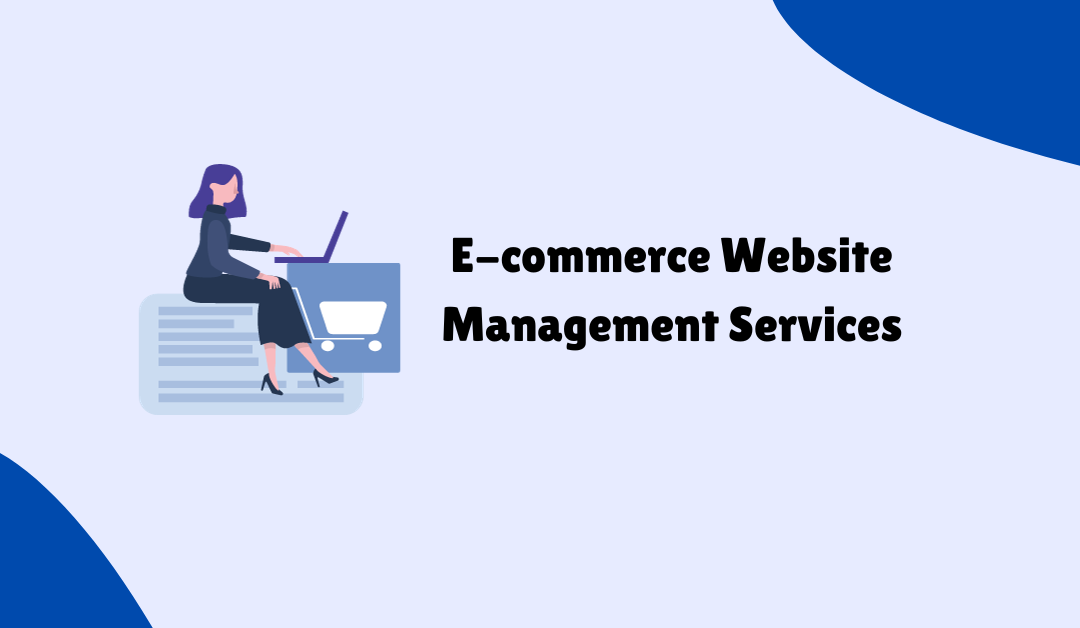In a fast-paced digital environment, efficiently managing an e-commerce website has become a critical aspect of running a successful online business. E-commerce website management services play a vital role in ensuring that your online store not only looks attractive but also functions smoothly, providing an optimal experience for both customers and business owners.

Introduction
E-commerce website management involves monitoring and performing various tasks related to the smooth functioning of an online store. From website design to order fulfillment to monitoring analytics, every aspect contributes to the overall success of your e-commerce business.
In this age of online shopping, the importance of effective website management cannot be overstated. It directly impacts customer satisfaction, brand reputation, and ultimately your bottom line.
Key components of e-commerce website management
Website Design and User Experience
First impressions are important, especially in the digital field. A well-designed website with an intuitive interface improves the overall user experience and encourages visitors to search and buy.

Product catalog management
To effectively manage your product catalog, you need to organize and display your products in an attractive and easy-to-navigate way. This includes updates to product details, images, and availability.
Order Fulfillment and Inventory Management
Smooth order processing and real-time inventory management are critical to preventing issues such as overselling and late delivery. A reliable e-commerce management service will definitely streamline these processes.
Security and payment gateway integration
Security is paramount in e-commerce. Professional services ensure secure transactions through robust payment gateway integration, protecting both businesses and their customers from potential threats.
Analytics and Performance Monitoring
Understanding user behavior and her website’s performance is key to making informed decisions. E-commerce management services provide analytical tools to track important metrics and optimize your website accordingly.
Benefits of professional e-commerce website management services

Increased sales and conversions
Effective management results in a user-friendly interface, faster loading times, and a seamless checkout process, all of which contribute to higher conversion rates and increased sales.
Improving user trust and satisfaction
A well-managed website creates trust among users. This reflects our commitment to quality and professionalism and promotes customer satisfaction and loyalty.
Time and cost efficiency
Outsourcing website management allows business owners to focus on their core activities while experts take care of the technical details. This not only saves you time but is also cost-effective in the long run.
Choosing the right e-commerce website management service

Assessing business needs
It’s important to understand your company’s unique needs to choose the management services that meet your goals and objectives.
Service provider evaluation
Thoroughly research and evaluate potential service providers. Look for reviews, case studies, and customer testimonials to gauge expertise and trustworthiness.
Customization and Scalability
Choose a service that offers customization options and can scale with your business. A one-size-fits-all solution may not be able to meet the changing needs of your e-commerce business.
Common challenges in managing e-commerce websites
Technical issues
From server outages to compatibility issues, technical issues can impact your user experience. Professional management services can address and resolve such challenges in a timely manner.
Safety concerns
As the threat of cyber-attacks increases, ensuring the security of customer data is paramount. E-commerce management services implement robust security measures to protect sensitive information.
Follow trends
The digital environment is constantly evolving. E-commerce management services stay on top of industry trends and ensure your website has the latest features and technology.
DIY eCommerce Website Management Tips

User-friendly platform
If you want to manage your website independently, choose a user-friendly platform that requires minimal technical expertise. WordPress, Shopify, and WooCommerce are popular options.
Regular updates and backups
We regularly update our website content and software to keep it relevant and secure. Also, perform regular backups to prevent data loss in case of unexpected events.
Customer Support and Feedback
Maintain open communication channels with your audience. Demonstrate your commitment to customer satisfaction by responding promptly to customer inquiries and feedback.
Case Study: Successful E-Commerce Website Management
Founded in 2022, Textile Emporium has rapidly become a leading brand in the home textile sector, crafting an impressive path to success. The brand’s dedication to quality and style is evident in its commitment to delivering a user-friendly online shopping experience.
The website is designed for easy navigation, offering customers detailed product information and a seamless journey from selection to purchase. Textile Emporium sets itself apart through personalized marketing, efficient inventory management, and a focus on ensuring secure transactions. With a central commitment to customer satisfaction, the brand continues to thrive as a trusted and innovative destination for home textiles, enhancing comfort and style in every home.
Future trends in E-commerce website management
The future of managing e-commerce websites is set to undergo exciting transformations, introducing trends that will redefine the way we shop online. Artificial Intelligence (AI) and machine learning will take center stage, bringing personalized shopping experiences and more efficient inventory management. Progressive Web Apps (PWAs) will become more prevalent, offering users app-like interactions directly through web browsers. Voice commerce is on the rise, with more people using voice-activated devices for seamless online shopping.
Augmented Reality (AR) and Virtual Reality (VR) applications will revolutionize how we visualize and interact with products before making a purchase. Sustainability and eco-friendly practices will become increasingly important, influencing both website designs and product offerings. Additionally, the integration of blockchain technology will enhance security for transactions and prioritize data privacy. In this ever-evolving digital landscape, keeping up with these trends will be essential for e-commerce website managers to stay competitive.

Conclusions
Effective e-commerce website management is vital for success in today’s digital landscape. It goes beyond aesthetics, encompassing user experience, product organization, and secure transactions. Professional management services offer benefits such as increased sales and trust while saving time and costs. Selecting the right service involves understanding business needs and careful provider evaluation. Textile Emporium’s success illustrates the impact of a focus on user-friendly design and efficient inventory management. Looking ahead, upcoming trends like Artificial Intelligence and Progressive Web Apps emphasize the importance of adaptability for e-commerce managers.
FAQs
What are the essential characteristics of a well-managed e-commerce website?
A well-managed e-commerce website includes an intuitive design, efficient product catalog management, and security. You need a payment gateway and robust analytics tools.
How do I choose the right e-commerce website management service for my business?
Consider your business needs, evaluate service providers based on reviews and testimonials, and make sure the service you choose is adaptable and scalable. You can book free consultancy here with our experts.
Are there free tools to manage an e-commerce website?
Some basic tools are free, but comprehensive e-commerce management often requires Investment in professional services is required.
What security measures should an e-commerce website have?
Security measures include SSL certificates, secure payment gateways, regular software updates, and proactive monitoring for potential vulnerabilities. It is included.
How often should I update my e-commerce website?
Regular updates are essential to staying relevant and secure. Update your content frequently and schedule software updates to keep your website running smoothly.
